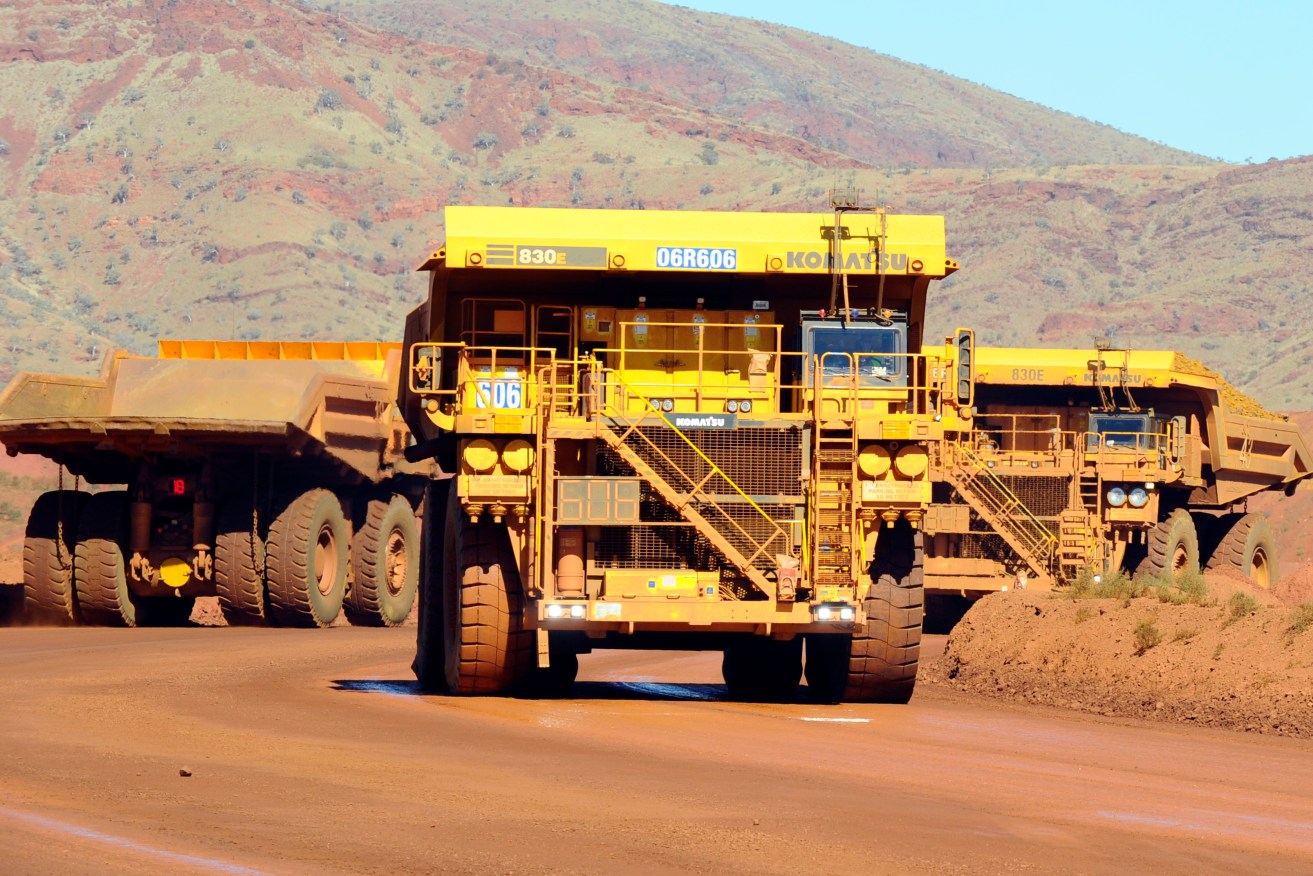Imagine paying the fuel bill for these monsters? Well, as it turns out, you already do
Australia could kick start the electric truck era by curbing off-road diesel rebates that go to the mining sector, economic modelling shows.

Haulage trucks at the Rio Tinto West Angelas iron ore mine in the Pilbara region of West Australia Wednesday, July 9, 2014. (AAP Image/Alan Porritt) NO ARCHIVING
A report to be released by independent think tank Climate Energy Finance on Monday calls for the diesel fuel tax credit (FTC) for the mining sector to be capped at $50 million a year per company.
Roughly eight mining firms would be affected: BHP, Rio Tinto, Fortescue Metals Group, Gina Rinehart’s Hancock Prospecting, Glencore, Peabody, Yancoal and Anglo American, according to the report.
“This is not a revenue grab, we’re trying to encourage them to do the right thing,” co-author Tim Buckley told AAP.
He said Australia must deal with the “hyper-inflationary” dependence on imported high-emissions diesel and build onshore manufacturing.
Australia needs its biggest companies to be “leaders not laggards” on electrification and emissions reduction, he said.
“This is all about them having a policy tailwind to back their own strategy of decarbonisation,” he said.
Mining operations often rely on diesel generators for power, particularly at remote worksites, and to operate haul trucks off road or transport ore to ports.
However, an open-ended rebate is inconsistent with Australia’s emissions reduction commitments, and a major headwind to electrification of the mining sector’s heavy haulage fleet, the report said.
The subsidy has ballooned in financial and climate costs in the past 20 years, with diesel contributing almost one fifth of Australia’s greenhouse gas emissions.
The May budget forecast taxpayer expenditure on the scheme to rise from $9.5 billion in 2023/24 to $11.2 billion in 2026/27 as diesel imports rise. Through to FY30, mining sector FTC subsidies will total a staggering $37 billion.
In contrast, capping the diesel subsidy for mining companies would save $14 billion by 2030 that could be used for set up costs for an electric truck industry and battery manufacturing, according to the report.
Australia may be a relatively small market for electric cars, but the scale of the mining industry makes it a worthy prospect for massive electric haul trucks that would chew through a battery every year.
The world’s first EV mine haulage industry could be turbocharged with redirected subsidies that would entice some of the world’s most advanced manufacturers – Liebherr, Komatsu and Caterpillar – to set up production lines here.
“We could be an incubator of these technologies,” Mr Buckley said.
Previous calls for a scrapping or halving of the rebate have been rebuffed by federal governments as disadvantaging farmers and hitting households by raising the cost of food.
But the report, Fuel Tax Credit Scheme and Heavy Haulage Electric Vehicle Manufacturing in Australia, found capping the rebate for big mining firms would have no impact on the agricultural sector or the cost of freight.












